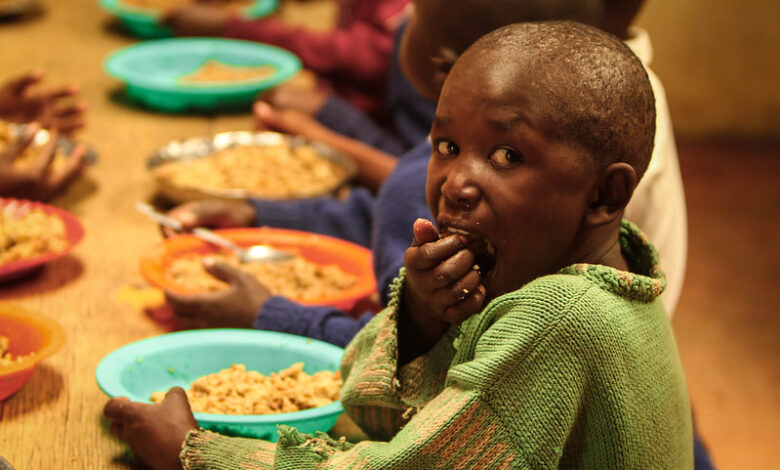Armed Conflicts, Other Factors To Push 26.5 Million Nigerians Into Food Insecurity By 2024 — Report
Among the 18.6 million people currently experiencing food insecurity in Nigeria, 3.3 million live in the northeastern states of Borno, Adamawa and Yobe. This number might rise to 26.5 million nationwide and 4.4 million in the BAY states by the height of the 2024 lean season if immediate action is not taken, the report stated.

A cocktail of armed conflicts, climate change impacts, and rising inflation are expected to plough about 26.5 million Nigerians into a high level of food insecurity by 2024. This indicates a sharp rise from nearly 18.6 million people currently vulnerable to food insecurity in Nigeria, according to a report by the Cadre Harmonisé, an initiative focused on food and nutrition analysis.
The initiative made this projection during the unveiling of the October 2023 analysis on food security in Abuja, Nigeria’s capital city.
With leadership from the Nigerian government and support from the United Nations (UN) system, Cadre Harmonisé conducts studies biannually — in March and October — across 26 states and the Federal Capital Territory (FCT) on food security situations in the country.
The latest study states that among the 18.6 million people currently experiencing food insecurity in Nigeria, 3.3 million live in the northeastern states of Borno, Adamawa and Yobe. This number might rise to 26.5 million nationwide and 4.4 million in the BAY states by the height of the 2024 lean season if immediate action is not taken, the report stated.
Also, an additional 9 million children are at risk of acute malnutrition, among which an alarming 2.6 million are projected to face Severe Acute Malnutrition (SAM). The report noted that armed conflicts and violent crimes in the North East, North West and parts of North-Central Nigeria exacerbate the situation, hindering food availability and access.
Food insecurity and malnutrition are among the main drivers of humanitarian need in the BAY states, said Trond Jensen, the head of the United Nations Office for the Coordination of Humanitarian Affairs (OCHA) in Nigeria.
“People have been forced to adopt negative coping mechanisms such as survival sex and child labour to stay alive. Over the past year, dozens of farmers have lost their lives, and others have been abducted or injured while eking out a living outside the security perimeters of Borno’s garrison towns due to limited farming lands and few or no livelihood options,” he added.
Also, David Stevenson, an official of the World Food Programme (WFP), said, “The hunger crisis in Nigeria, fueled by the ongoing conflict in the northeast, needs urgent addressing. Restoring peace in the northeast is critical for us to build pathways to production and achieve the northeast’s potential as the food basket of the country.”
HumAngle has reported how young girls were sexually assaulted by camp officials across displacement camps in Borno in exchange for food supplies. In another instance, older women who could not attract these officials offered their daughters or orphaned girls for sex as a condition to receive food and medical supplies.
Violent extremism in the Northeast has left hundreds of thousands of people dead and displaced more than 2 million from their homes, opening a floodgate of unprecedented humanitarian needs in the region.
Support Our Journalism
There are millions of ordinary people affected by conflict in Africa whose stories are missing in the mainstream media. HumAngle is determined to tell those challenging and under-reported stories, hoping that the people impacted by these conflicts will find the safety and security they deserve.
To ensure that we continue to provide public service coverage, we have a small favour to ask you. We want you to be part of our journalistic endeavour by contributing a token to us.
Your donation will further promote a robust, free, and independent media.
Donate HereStay Closer To The Stories That Matter




